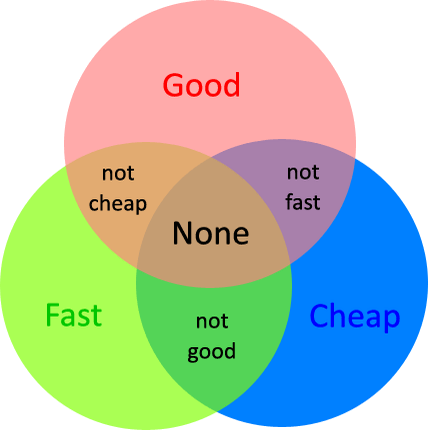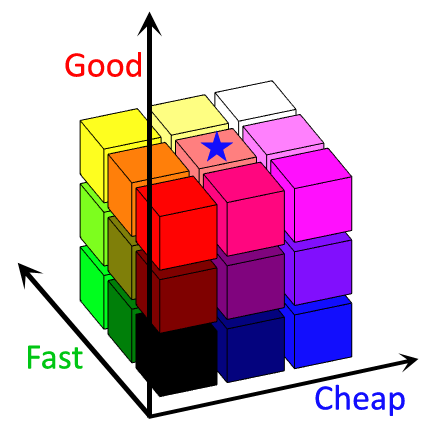How much does translation cost?
Short answer: from $50 to $20,000.
Long answer: it's complicated. It depends on many factors, such as those below:
- Languages
- Volume (length)
- Type of work
- Urgency
- Specialisms
- Quality
- Technologies
- Location
Individual cost factors
Let's consider each of the above in more detail.
Languages
Translation between English and Spanish is cheaper than rarer combinations like Swahili and Japanese, due to the number of people and companies offering such services (and the lack of technology-based solutions). This is particularly true with professional translation and interpreting for business or legal purposes.
Volume
Translating 100,000 words takes longer and costs more than 10,000 words. Interpreting for 5 days costs more than 1 day. Transcreating subtitles or dubbed audio for a 2-hour feature film costs more than a 10-minute short. People occasionally ask for a 'volume discount' but that seldom works, as 'economies of scale' don't really apply to the translation/interpreting profession.
Type of work
Written translation is normally charged on a 'number of words' basis (sometimes the number of characters, lines or pages). This is sometimes based on the 'source' language (if you're translating electronic text such as Word documents) but sometimes on the 'target' language (if you're translating text that is handwritten or otherwise hard to process, such as PDFs). Spoken interpreting is generally charged per day (sometimes per half day, hour or minute). The charges for simultaneous interpreting will be different from those for consecutive work (partly as more people will be needed). Audio transcription and subtitles (with or without translation) are sometimes charged on a time basis, which could be either the length of the original audio/video, or the time taken to do the work. DTP and typesetting (laying out foreign text for professional printing or design work) may be charged per page, per hour, or as an all-in price for the entire job.
Urgency
Many translators will charge a supplement if work needs to be done quickly, and interpreters also charge extra if they have to work at weekends or unusual hours (e.g. due to clients in different time zones).
Specialisms
Translating a complex legal contract or old genealogical records naturally costs more than a simple letter, and interpreting at a medical conference costs more than assisting visitors at a tourist attraction.
Quality
Some jobs can be performed by volunteers or amateurs, but others require top professionals (and circumstances may require specific qualifications, confidentiality, or 'a second pair of eyes'), all of which influence the price.
Technologies
Computer-assisted translation (CAT) can make work faster and cheaper, but only works in some situations. Simultaneous interpreting requires special booths and equipment, and remote consecutive interpreting will also often require the use of special hardware and/or software. These naturally affect the costs too.
Location
Translators and interpreters based in developed countries with a high cost of living naturally tend to charge more than those based in developing nations, or those where the currency is weak.
Free translation
People increasingly use free machine translation services (such as Google Translate) on computers or mobile phones to translate short documents or simple conversations, and the quality is constantly improving. But it's worth remembering the old adage: "Good / Fast / Cheap - pick any two".

Nowadays that has probably been superseded by the 3D model below: "Good / Fast / Cheap - pick your sweet spot". For example, if "cheap and fast" are your top priorities, you might choose machine translation, while sacrificing quality. We put ourselves where the star is shown below: top quality, at a reasonable speed and price.

Interpreting work for charities or other worthy causes is sometimes done for free by volunteers - thousands help interpret at the Olympic Games. Translators starting out in their careers may also work for charities for free, to gain experience. Some films are given free translated subtitles via a process called 'fan-subbing', although it's not always legal (it can infringe copyright). Finally, even experienced translators or interpreters such as ourselves may sometimes work for free (pro bono) or at discounted rates for causes they believe in.
Our charges
As shown above, it's impossible to provide a simple answer to questions such as "What do you charge for translation?" or "How much does interpreting cost?". As a general rule, unless it's something for a charity working for our chosen causes (principally gorilla conservation), we'll seldom accept even a short job for less than £50/$50, and larger jobs can come in at £20,000 or more. It all depends on the detail, so the best way to find out is contact us and ask for an estimate, giving us as much information as possible.
How to compare translation costs
You may find one translation company quotes you $0.10 per word but another says €100 per 1000 keystrokes. How do you decide? We have created a tool that allows you to convert these costs and make a comparison (as shown in the video clip below).